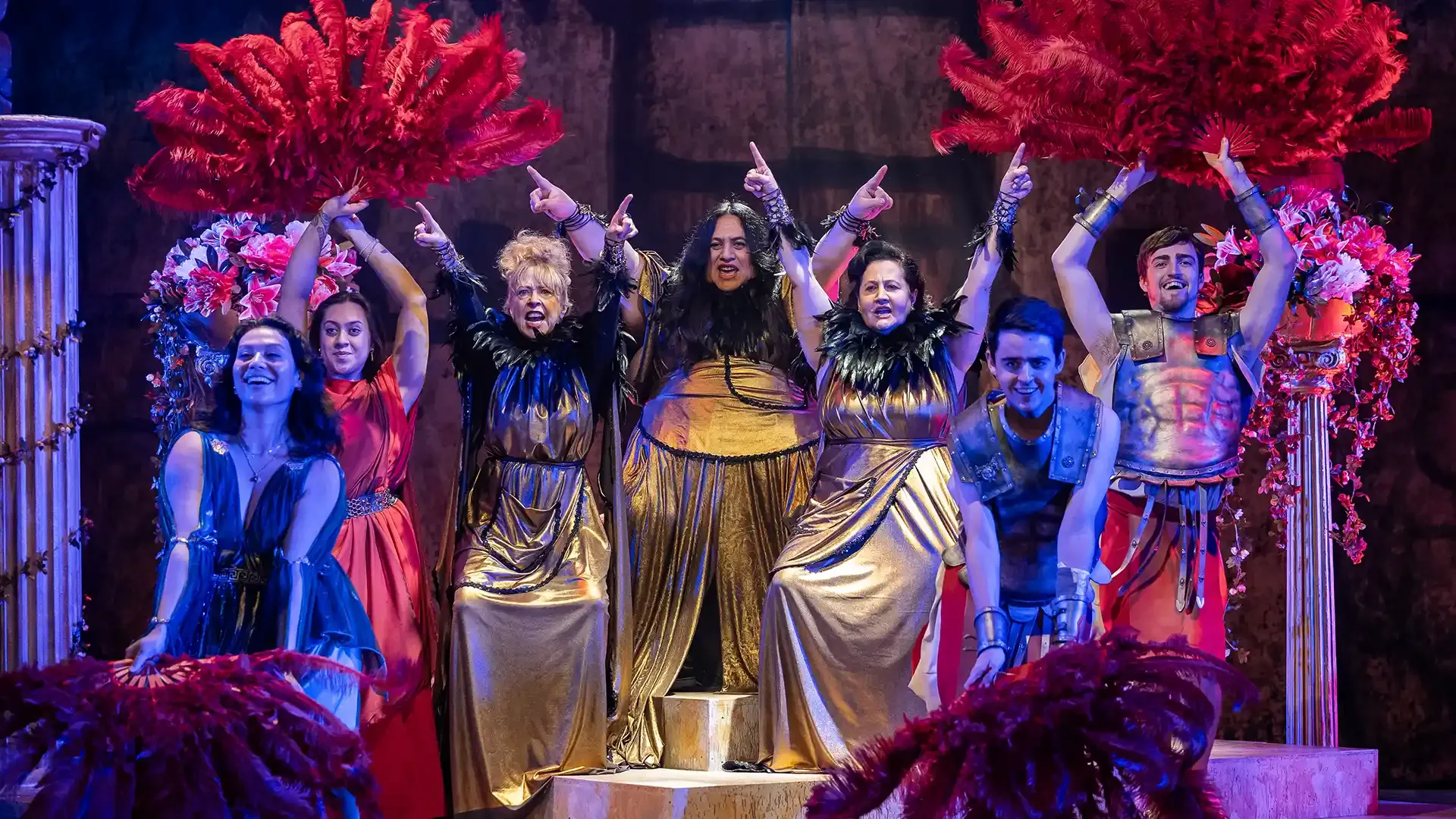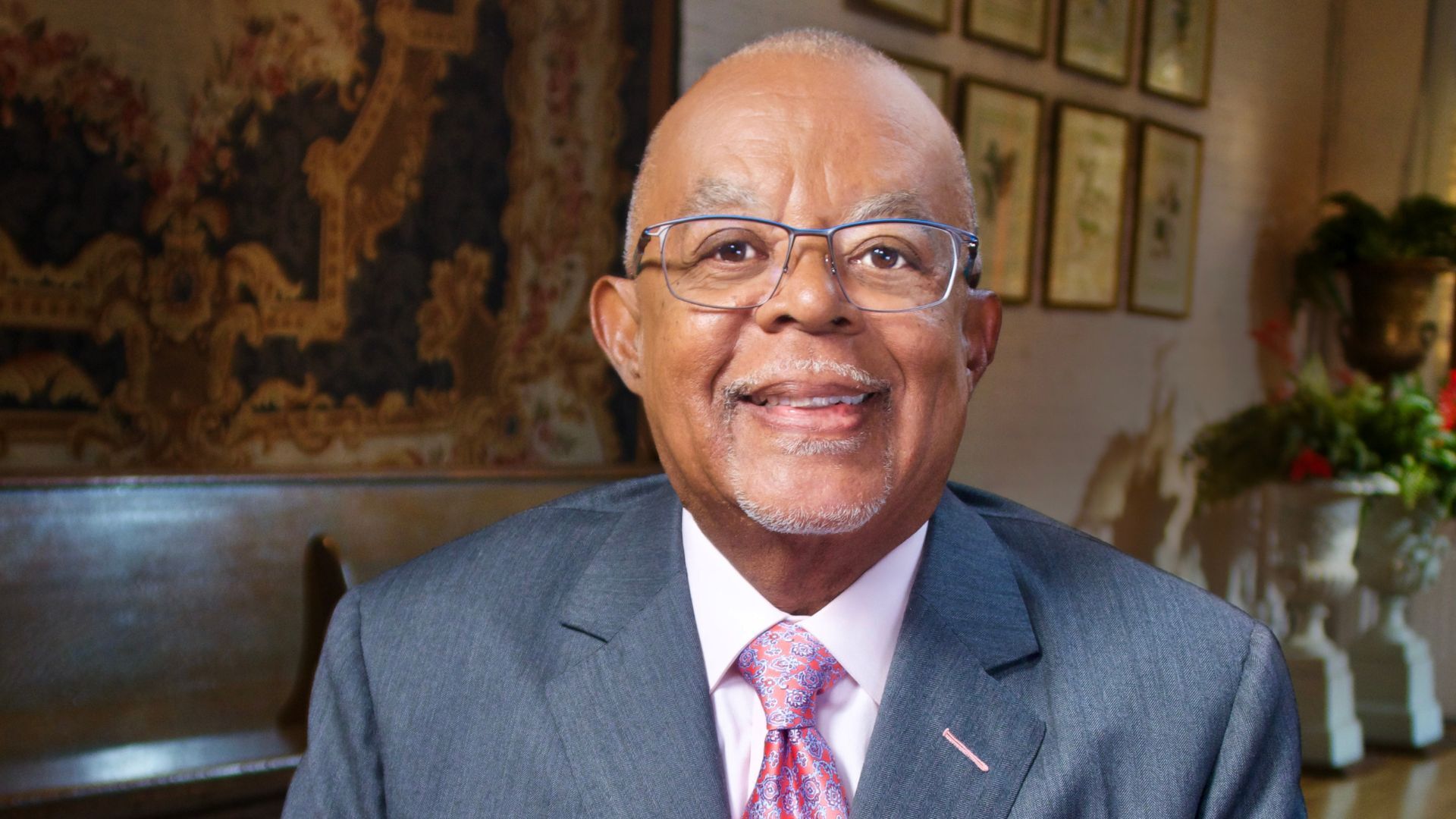Season 1 of Marie Antoinette introduces the naive yet intrepid Antoinette – a young teenager sent to solidify the Franco-Austrian alliance. Over the course of the season, Antoinette navigates the ups and downs of royal life, and along the way, gathers friends, foes, and acquaintances amidst the grand palace halls of Versailles.
In Season 2, Marie Antoinette faces a new array of challenges and obstacles. The higher she climbs in the estimation of the French people, the greater the threats against her. Looming underneath the surface of France’s problems is the exacerbating financial crisis. The French people are feeling the crushing weight of the country’s economic shortcomings – and increasingly, political unrest is spiraling into a call for systemic change.
How will Antoinette and Louis fare during this time of uncertainty? Read on to find out.
France Faces A Blizzard
A dreary, somber winter settles over the bleak hills and streets of France – the everyday people are struggling, food is scarce, and whispers of anti-nobility sentiment are starting to grow louder….
Marie Antoinette can see how dire things look for her country. With a new baby on the way, the experienced Queen hopes things will correct course in due time. Until then, however, her spending is held on a tight leash. When Boehmer, a well-known jeweler, approaches Antoinette with a jaw-dropping diamond necklace, the Queen is forced to send Boehmer on his way. To entertain the purchase of such a lavish piece would reflect poorly on the palace – plus, it’s not her style at all.
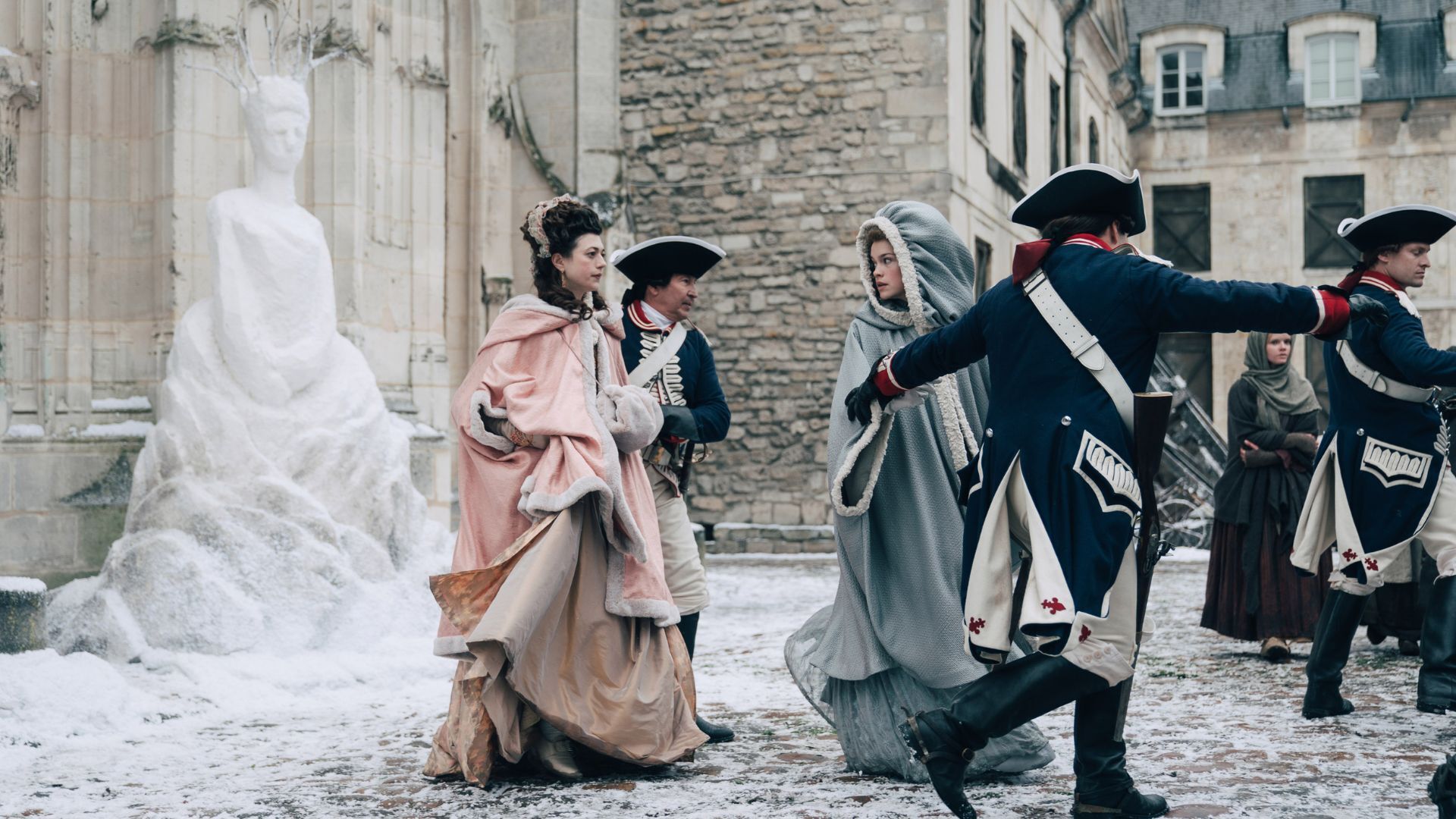
Nevertheless, Antoinette finds ways to shake up some of the palace’s conventions. One of her recent decisions includes making it clear to the nobility that loyalty will be rewarded. And who’s at the top of her list? Her dear friend Yolande who becomes a duchess overnight.
Meanwhile, Chartres – once a well-regarded member of the family – is hanging out with an independently-minded group, one that is not in favor of Antoinette or Louis. Félicité, his lover and a passionate political thinker, is eager to prop up Chartres as a political rival to Louis. All he needs to get there is a little push in the right direction, and she’s more than happy to help.
France Struggles With Debt
Lo and behold, France has a money problem. While Louis has been trying his best to hide it, the issue has continued to worsen with no tangible solutions in sight.
Louis knows he needs to appoint a new Financial Controller – but who? Provence, Louis’ conniving younger brother, presents himself as a candidate, but Louis knows better than to trust him.

Yolande, burdened with a pile of debt from her lover and husband, sees a window of opportunity with the open position. The duchess puts a plan in place to have her friend, Calonne, win over Louis’ approval.
However, while Yolande focuses on introducing the two men to each other, Antoinette experiences a crisis of her own. In a corridor not far off from the trio’s discussion (but not out of Yolande’s peripheral vision), Antoinette has a miscarriage. Rather than helping her Queen, Yolande turns her back on Antoinette to ensure Louis takes Calonne on as Financial Controller.
Nevertheless, Calonne’s appointment doesn’t immediately resolve any issues, and the two men struggle to see eye-to-eye in regards to problem-solving. Calonne is in favor of raising taxes on the nobility and clergy to raise money, however that’s a risk Louis isn’t ready to take – yet.
Jeanne Sets Out Her Schemes
Meanwhile, Versailles has a highly deceptive, determined tactician on its hands. Enter Jeanne de la Motte, an enterprising con artist who is ready to make her fortune – and her first stop is Versailles.
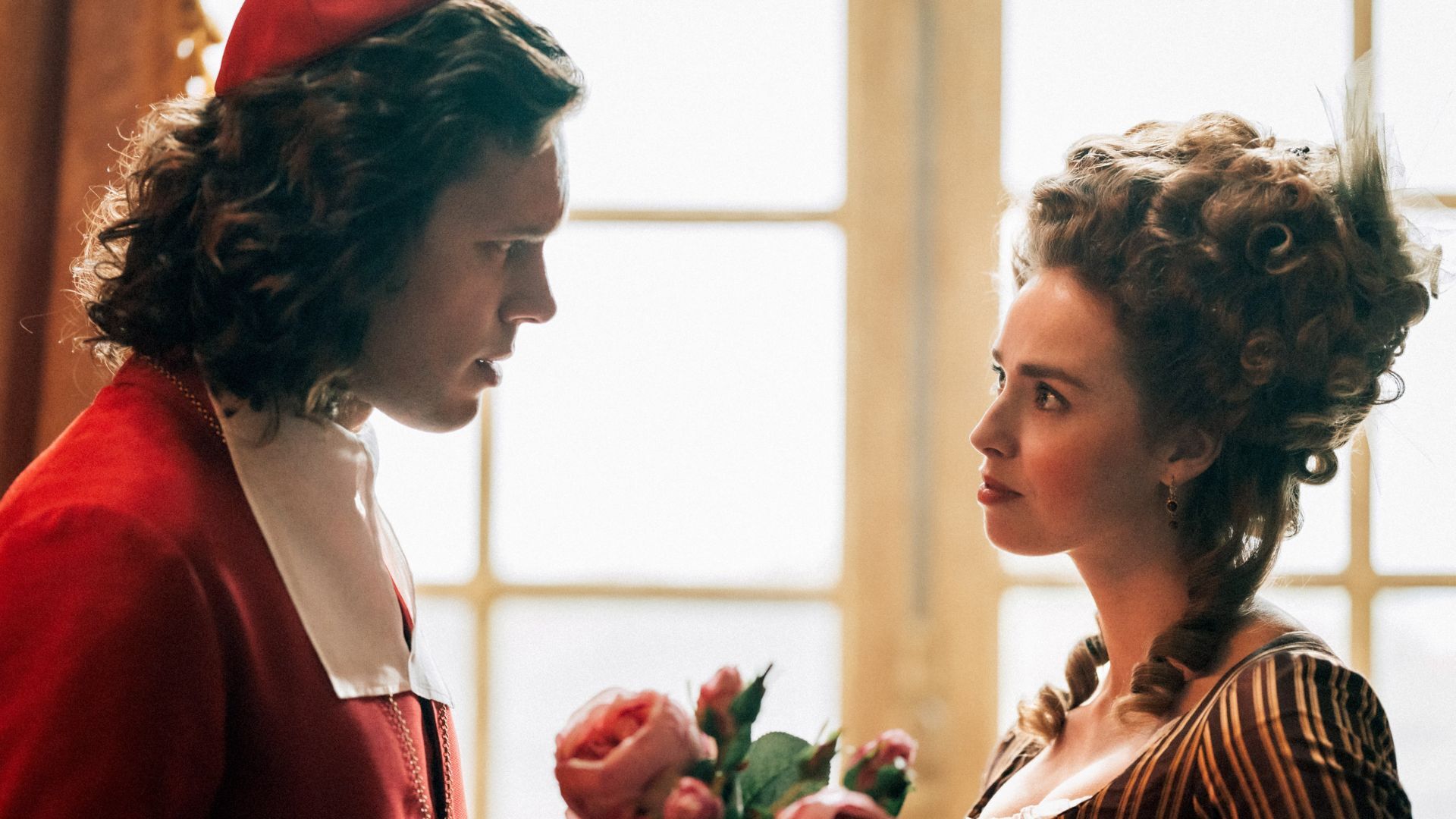
With the help from her friend Villette, Jeanne has her sights set on breaking into Antoinette’s private apartments and finding her secret stash of jewels. She falls short on that account but manages to steal Antoinette’s secret love letters from Axel Fersen instead – a treasure she doesn’t even realize she possesses because they’re written in lemon juice, which requires heat to see. As an experienced con artist, she just thought the Queen’s stationary could come in handy!
When Jeanne catches word of Boehmer’s famed, opulent diamond necklace, she hatches an even grander scheme: securing the £2,000,000 piece of jewelry. To do so, she pursues Cardinal Rohan, a man eager to win over Marie Antoinette’s favor. Jeanne realizes she can convince the foolish Rohan to act as a puppet in her endeavor.

Escape the ordinary. Sign up for the PBS Drama Digest
Explore breathtaking period dramas, gripping crime thrillers, and captivating international shows from MASTERPIECE and other PBS favorites.
Count Axel Fersen Returns
While Antoinette recovers from her miscarriage, she finds a much-needed distraction in the form of a new play, written by the acclaimed French playwright, Beaumarchais. Louis has allowed for a private performance of the play at Versailles and Antoinette has been cast in a lead role.
However, Antoinette has a surprise on her hands. Axel Fersen, Antoinette’s former lover, has returned to Versailles after three years away.
Initially, Antoinette tries to resist him, but such efforts are futile. The couple’s chemistry is palpable, and soon, the two lovers fall back into each other’s arms.

Antoinette does her best to keep her affair a secret, but with limited success. Right before the production of "Figaro" begins, Louis walks in on Antoinette and Axel talking rather closely (and alone) in a backstage dressing room. Louis is understandably hurt, and he cancels the private performance of the play.
Fortunately, Antoinette makes amends with Louis and even convinces her husband to green-light a public performance of "Figaro." However, to the couple’s shock, Beaumarchais has re-written a significant portion of the play, which now invokes blatant anti-nobility sentiments.
Outraged, Louis does what he does best – calls for the immediate suspension of the play – and has Beaumarchais thrown in the Bastille.
Chartres and Félicité Target Louis
The burgeoning groans among the French people play right in favor of Chartres’ anti-monarchical agenda.

Chartres, reinvigorated with a strong sense of self-confidence, has new prospects lined up for him. His father has recently died, thereby making him the new Duke of Orléans. With this new title, Chartres’ money and power grows considerably. Louis, aware of Chartres’ heightened influence, decides to invite his cousin back to Versailles.
Antoinette, who is pregnant once again, is repulsed by Chartres’ return to Versailles, although there’s nothing she can do about it. Her once-close friend even tries to win back the Queen’s good graces, but she’s cynical of his intentions, and for good reason.
Support your local PBS station in our mission to inspire, enrich, and educate.
Rumors and Secrets
Chartres tells Antoinette that he has proof her expected child is Fersen’s, not Louis’. However, to help the Queen, he’s confident he can convince the public that Louis is in fact the father. In return for his “generosity,” he presents his request: Antoinette must promise her daughter to his son in marriage.
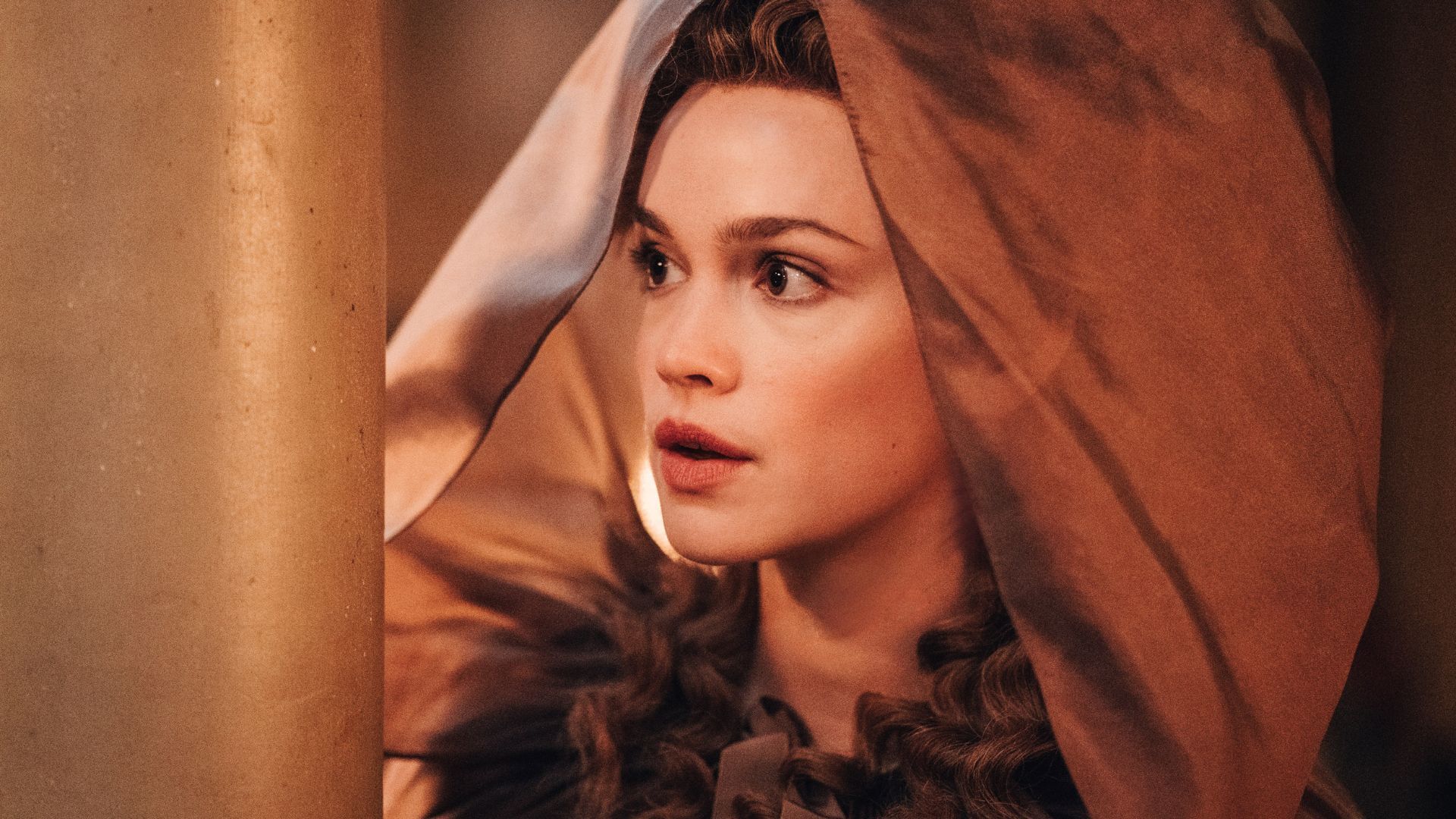
She furiously refuses his offer – unlike herself, her daughter will marry whom she pleases – and Chartres wastes no time. Rumors quickly begin to circulate again about the paternity of Antoinette’s child. Even Louis doesn’t know what to make of the accusations – is the child his?
Then again, Louis has his own secrets he’s harboring. Unbeknownst to Antoinette, Louis is aware that their eldest boy likely is suffering from a chronic genetic condition and won’t live much longer.
Rather than inform his wife, Louis chooses to only confide in Yolande. For now, he asks the Duchess to keep the secret between them two. There’s no need to involve Antoinette just yet....
Cardinal Rohan Signs for the Jewels
Elsewhere, Jeanne’s plans to acquire the famed diamond necklace hit a roadblock. Because Boehmer still hasn’t found a buyer for his extravagant jewels, he intends to break up the necklace in order to make a profit.
This news is not what Jeanne wants to hear. She has to fast-track her plan – meaning she needs to convince Rohan to sign for the necklace before it is taken apart. Things also get slightly complicated for Jeanne when her husband, La Motte, unexpectedly shows up.

Fortunately for Jeanne, stealing Antoinette’s “stationary” does come in handy – it helps her write convincing letters to Rohan, masquerading as the Queen herself!
With the Cardinal earnestly believing he is communicating with Antoinette, Jeanne proposes her ultimate request: that Rohan acquire the necklace on the Queen’s behalf in secret with money she will provide. Why? So she can secure the jewels and avoid public backlash over such a costly purchase.
Rohan is eager to comply. However, it will be a transaction that will haunt him for the foreseeable future….
Antoinette Requests a Portrait
Realizing her public image is an increasing target for scrutiny, Antoinette commissions a new portrait of her and her children – one that portrays her in a more maternal light as The Mother of France.
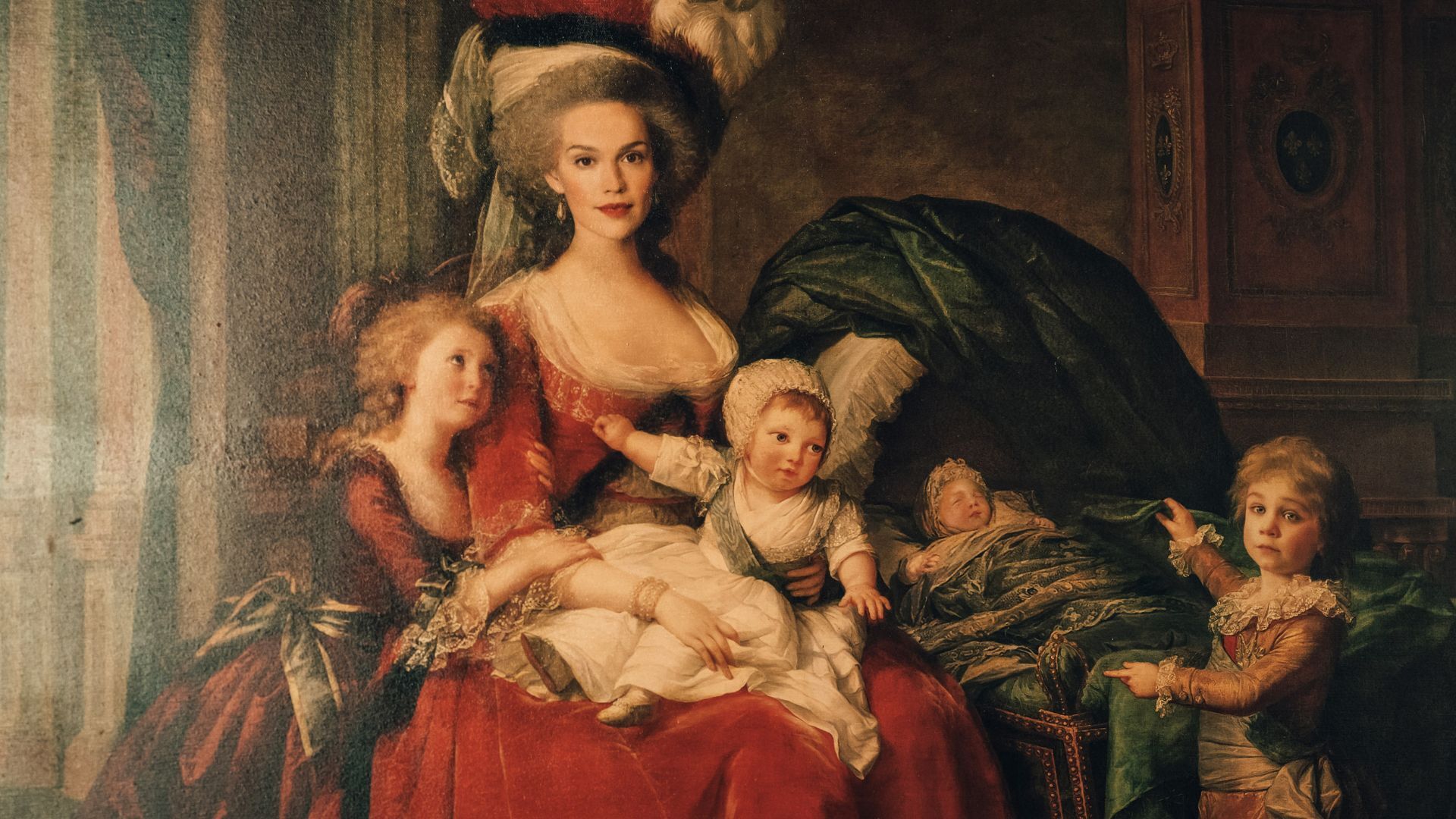
Antoinette also adopts a new fashion sense that leans on a modest, conservative aesthetic. She’s hopeful that the changes to her hair and clothing will appeal to the French public and win her more respect.
Unfortunately, Antoinette’s efforts fall short again. She finally realizes that no matter what she does, the court will consider it wrong.
A Trial For the Ages
For Cardinal Rohan, falling for Jeanne’s scheme to acquire the costly necklace for “the Queen” soon catches up to him. Boehmer, furious he still hasn’t received his payment, brings his complaints directly to Louis and Antoinette.
Louis has Rohan arrested – and in front of the Cardinal’s congregation, no less!
Confusion races through the streets of Paris at the surprising turn of events. Not long after, the King’s Guards hunt down Jeanne de la Motte and arrest her, too. She remains adamant that she had no part to play in the fiasco – but how far will her lies get her?

Antoinette realizes the only way to clear her name properly is to have a public trial. She visits Jeanne in prison and insists that Jeanne testify against Rohan, and she agrees. But you should never trust a con artist.
Meanwhile, Chartres and his crew view this trial as a way to further their agenda. Chartres ensures the esteemed Madame Rohan that her nephew will be exonerated.
By the time Jeanne takes the stand, she’s changed her tune. She testifies that Cardinal Rohan exhibited a sexual obsession with the Queen and adds more slanderous claims about Antoinette.
But Jeanne is in for a big surprise when her accomplice, Villette, testifies. He admits to his role in delivering the fraudulent letters from Jeanne to Cardinal Rohan – a vital piece of evidence that proves Rohan’s innocence.
The verdict is shortly announced: Rohan is found not guilty; Jeanne is guilty. Her sentence will involve beating, branding, and an indefinite prison sentence.
Chartres and his crew are victorious – but for Louis and Antoinette, their misery continues to mount.
Louis Confesses His Secrets
After the unfavorable court verdict, Louis finally opens up to Antoinette about the state of France’s current (and imminent) disarray. She’s shocked to learn of the peril the country faces, however, nothing can prepare her for his other deep, dark secret.

Louis also admits that he knows their eldest son and dauphin is stricken with a chronic degenerative disease. He will likely never recover, and an early death is most certainly in the cards for him.
Antoinette is speechless. How could her own husband withhold such shocking, important information about their child? How is she supposed to forgive him for misleading her about the dauphin’s health?
Further Tragedy Ensues
And, really, Antoinette can’t seem to catch a break. When attempting to burn evidence, La Motte, Jeanne’s husband, realizes that the Queen’s “stationary” is actually secret love letters to Axel Fersen – a veritable goldmine! He demands money from the Queen or he will expose the affair.
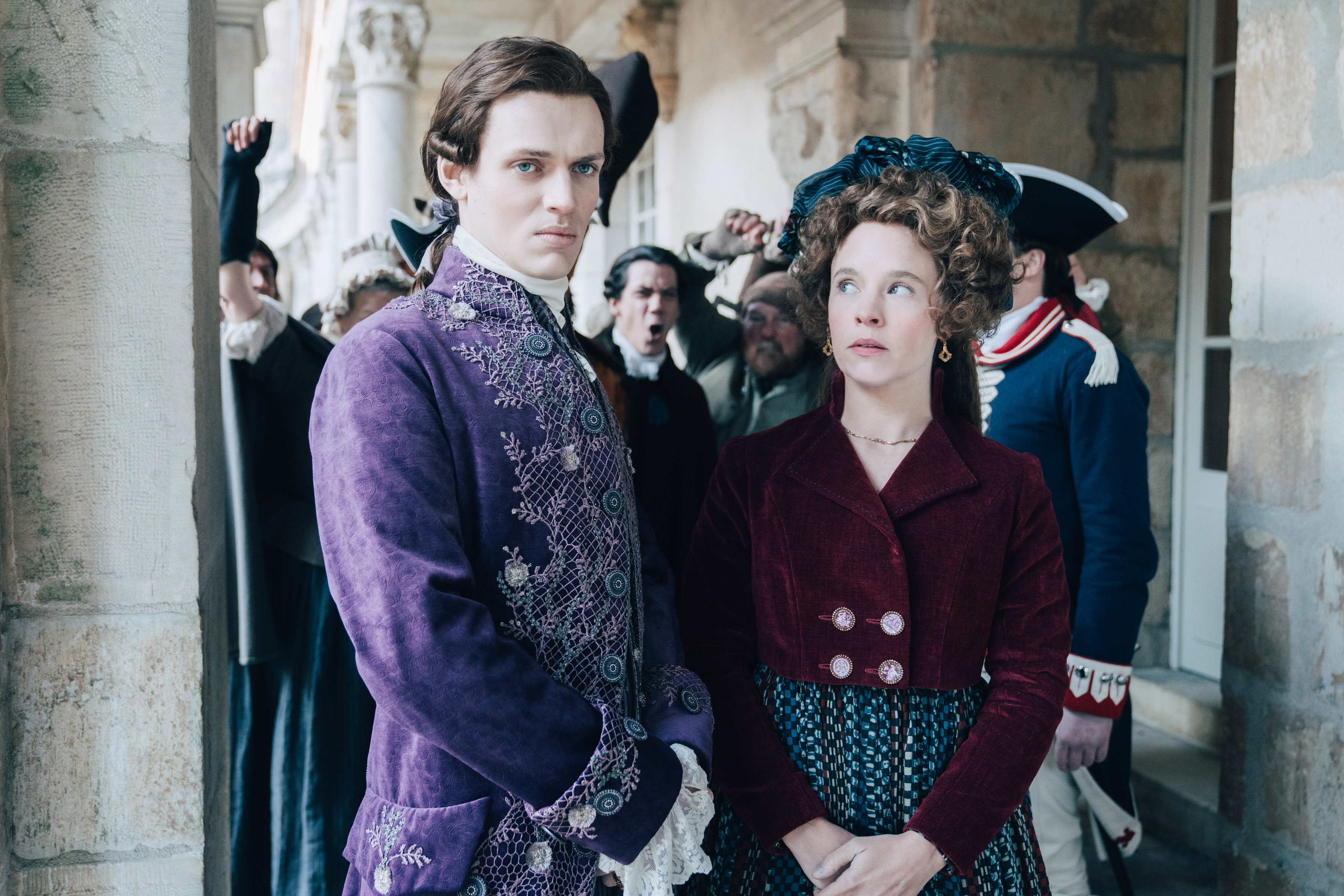
As if that’s not bad enough, things get even worse for Antoinette. In a tragic turn of events, her youngest child, Sophie, passes away unexpectedly. Fersen, Sophie’s suspected but unconfirmed father, is notably devastated by the tragedy.
But Louis and Antoinette have little time to grieve. Restlessness is still rampant in France and the common people of France are raising their voices.
Calling the Estates-General
Louis, realizing France’s financial crisis isn’t resolving itself anytime soon, finally realizes it’s time to implement new tax policies and reform. To do this, he calls upon the Estates-General, a representative assembly of the three estates: the clergy, the nobility, and the commoners – and Louis needs the approval of all three them.
Unfortunately, things don’t go according to plan for the King.

First, Louis is furious with the assemblies for not quickly abiding by his requests. Then, his nerves get the better of him, and Antoinette is forced to step in while he emotionally recovers.
However, the couple’s predicament is about to become even more complicated. Much to their surprise, the Third Estate (aka the commoners) have broken away to form the National Assembly, a political body demanding a new constitution that would elicit political and social reforms….
Jeanne La Motte’s Fate
With the help of Chartres’ lover, Félicité, Jeanne manages to escape from prison. In exchange for getting her out, Jeanne promises to write a book recounting the actions that led her to her sentence – as well as sordid details about Antoinette.
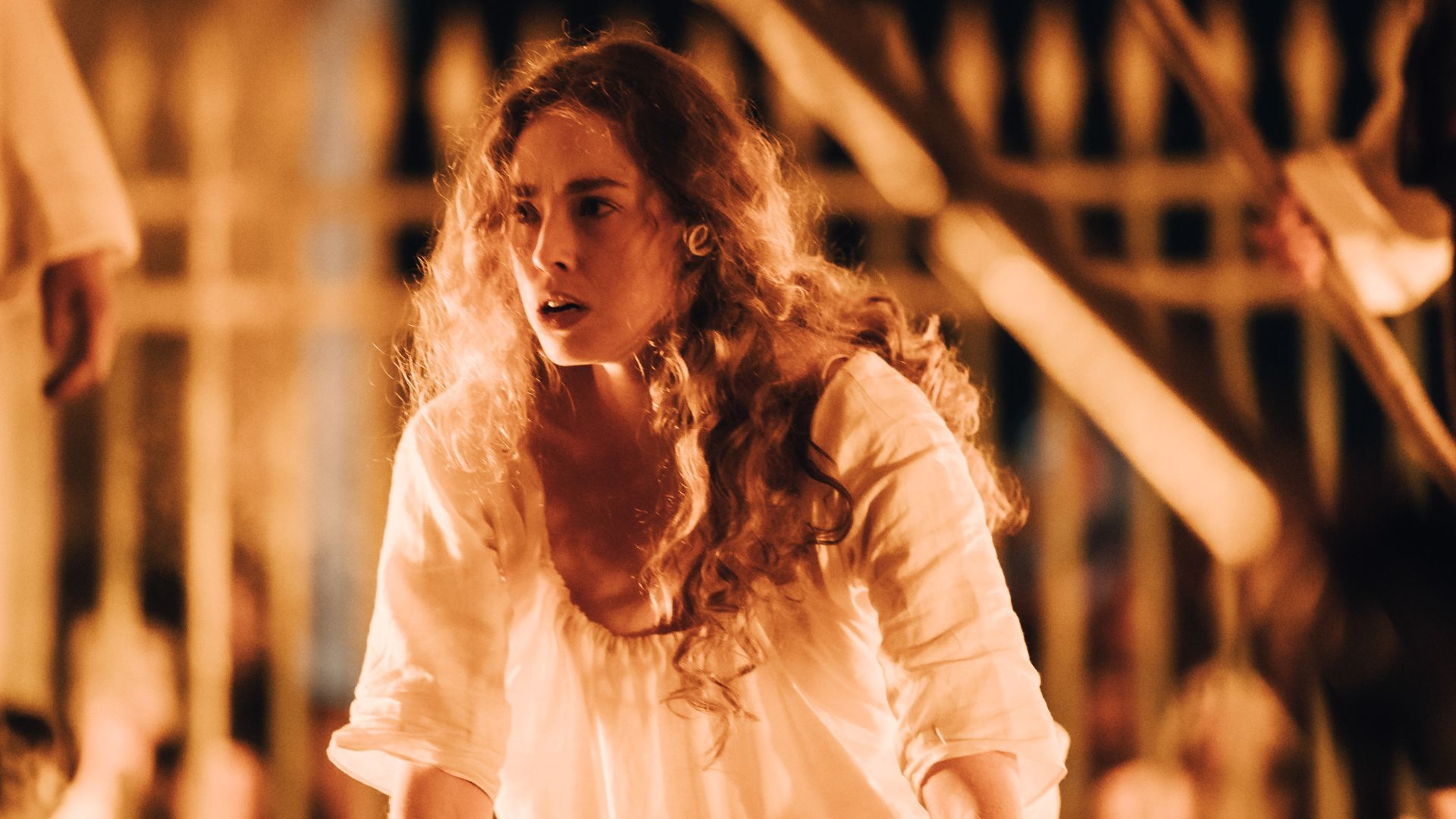
However, Jeanne’s luck runs out when her victorious jailbreak meets a tragic fate. While trying to outrun a group of guards who arrive on her premises, she misjudges a jump from her window to a passing cart below and falls to a gruesome death instead.
France Responds
Louis realizes he has little leverage and decides to recognize the National Assembly. However, shortly after doing so, a group of civilians launches an attack on Versailles.
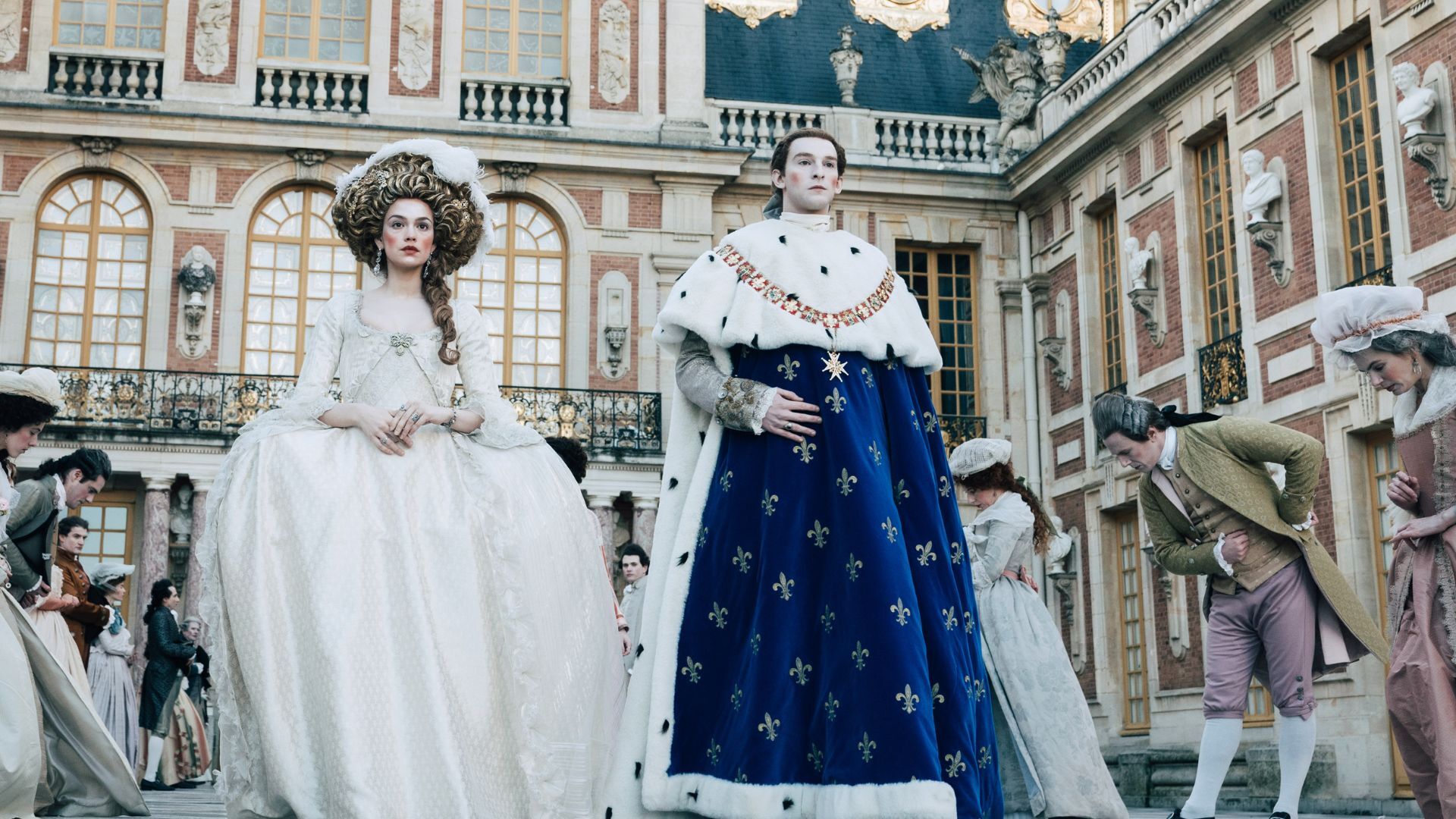
Antoinette requests Chartres' presence at the palace where she tells him to calm the angry mob and convince the Third Estate to abandon the National Assembly.
But Antoinette and Louis are too late – the People have spoken. While many of the couple’s friends and families have opted to leave Versailles, Louis and Antoinette choose to stay, at least for the time being.
Season 2 closes out with gunshots ringing throughout Versailles. Chartres, in effect, has raised himself up to be the People’s leader.
What will become of Louis and Antoinette’s fate?
Want to relive all of your favorite moments from the series? Catch up with Marie Antoinette, now streaming on PBS.



